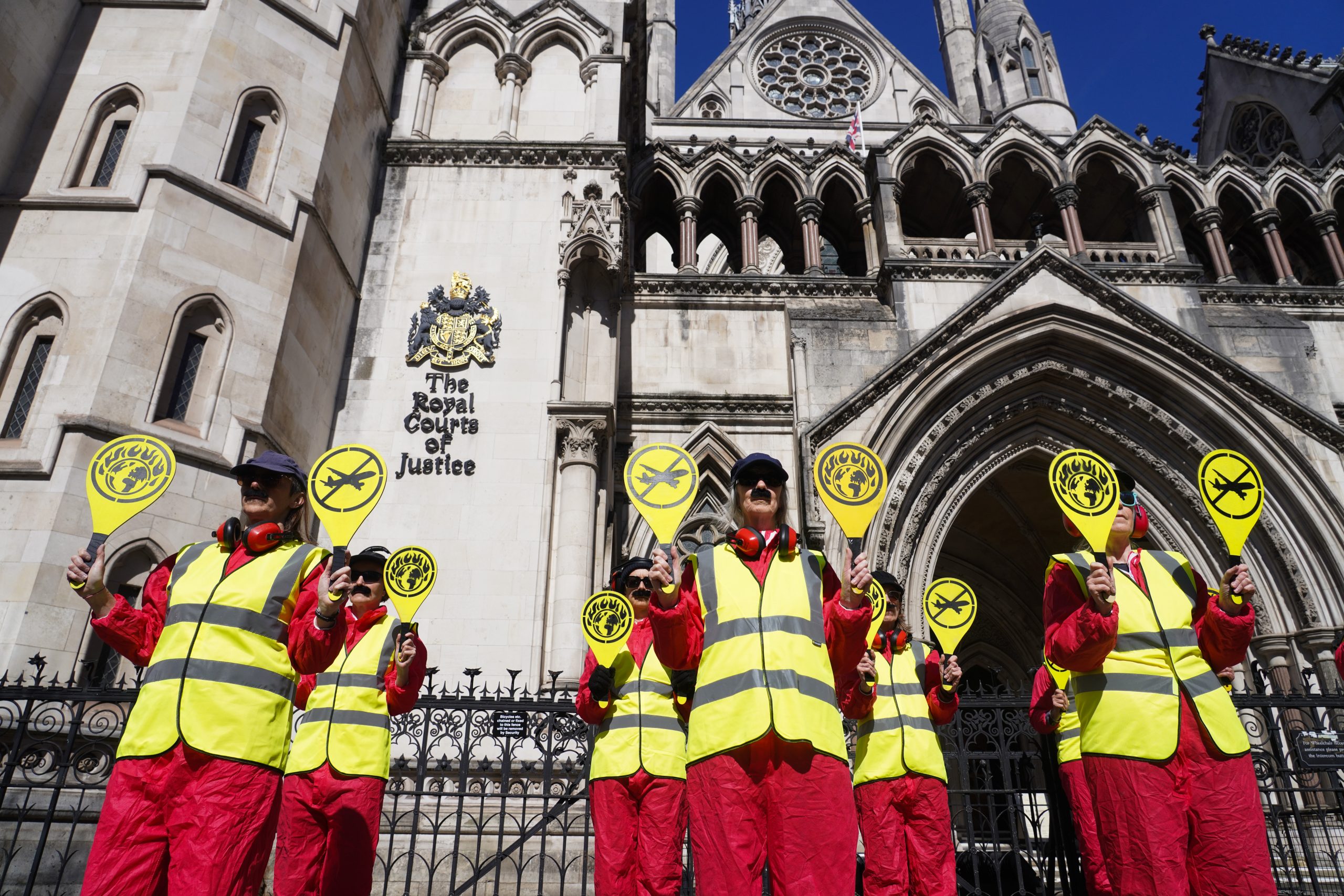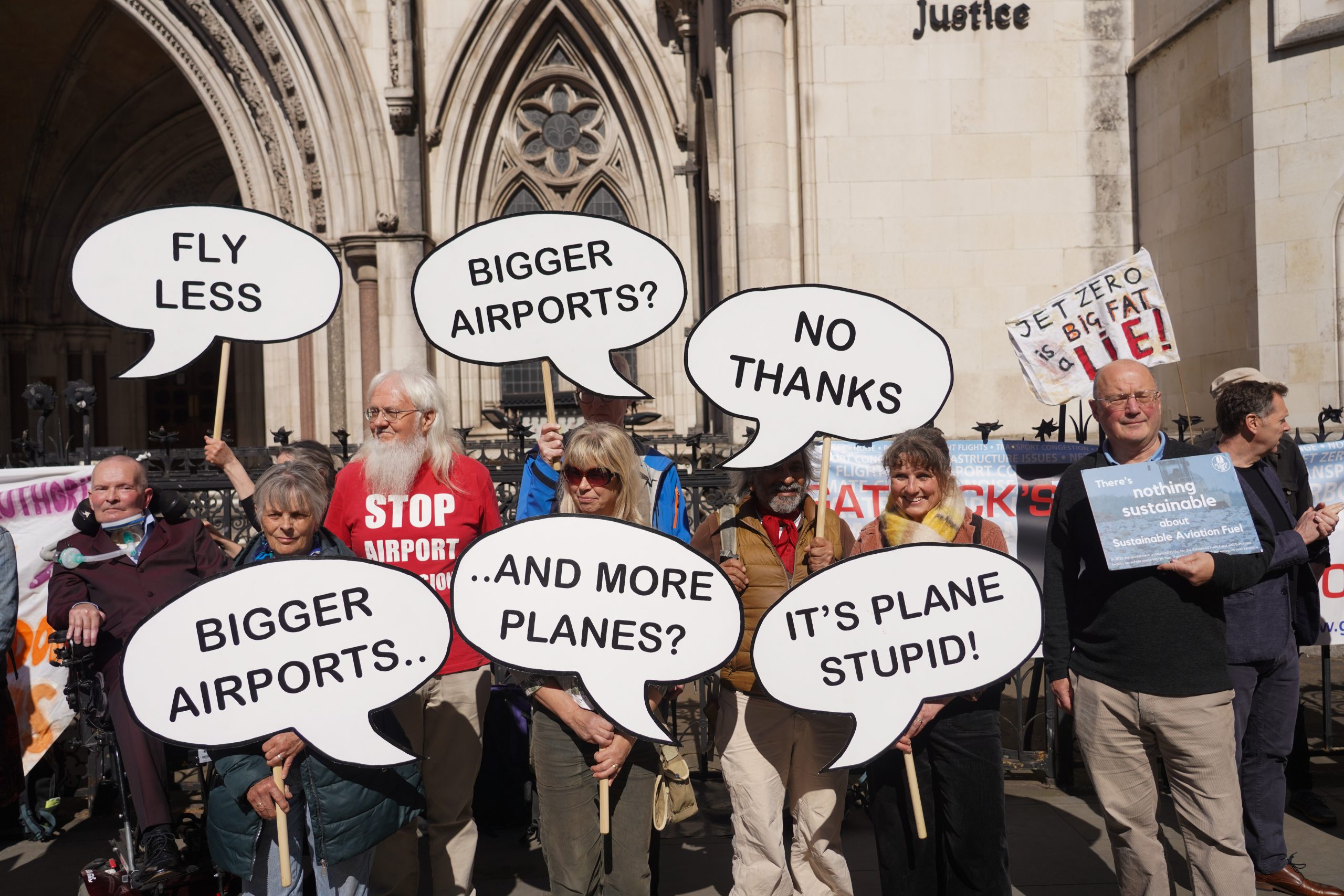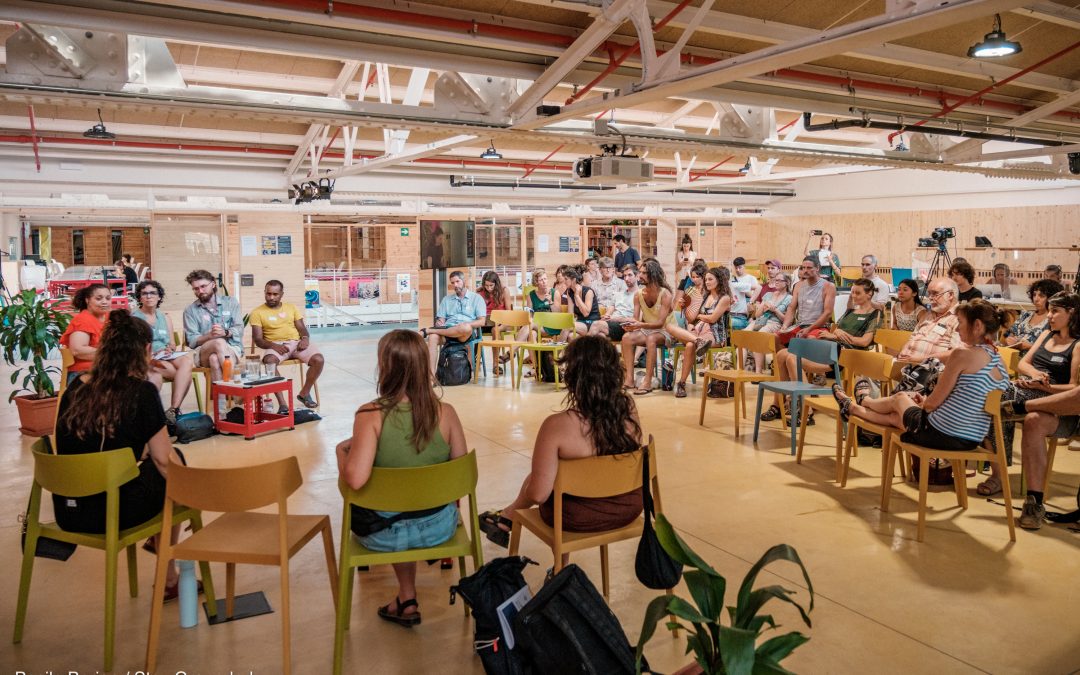On Tuesday 1st April, the Group for Action on Leeds Bradford Airport (GALBA) was joined by aviation campaigners from different parts of the UK to protest against the UK government’s reckless and irresponsible Jet Zero Strategy. The protest was held on the first day of a hearing in the High Court, London, to consider legal challenges brought by GALBA and Possible.
Around 50 people gathered in front of the Royal Courts of Justice in London, holding banners and placards calling for an end to airport expansions. One banner brilliantly summed up the government’s strategy with the words: ‘Jet Zero is a big fat lie’. The campaigners were joined by the legendary Landing Crew who brought colour, movement and fun to the protest.
Jet Zero was published in 2022 by the Conservative Minister for Transport, and amateur pilot, Grant Shapps. The current Labour government has chosen to retain the strategy, with its heavy emphasis on alternative fuels and new technologies, claiming it can make flying clean by 2050. GALBA and Possible disagree.
What is Jet Zero?
Jet Zero is the UK government’s strategy for how, they say, the aviation industry can reach net zero emissions by 2050. Rather than focusing on the levels of demand reduction that are needed the Jet Zero strategy promises to allow people to continue flying ‘guilt-free’. It combines a number of measures, including the development and use of alternative aviation fuels, improvements in aircraft efficiency, carbon markets, carbon capture & storage, and informing consumers about the emissions caused by their flight choices.
The strategy relies heavily on the large-scale availability of alternative fuels to replace the kerosene that powers planes. There are different types of alternative fuels, ranging from biomass (used cooking oil or plants), to green hydrogen to green electricity.
What is the problem with Jet Zero?
There are issues with each type of alternative fuel upon which the Jet Zero strategy relies. From experts at the Royal Society to aviation industry consultants Bain & Co., a number of independent experts have reached similar conclusions about the technological and alternative fuel measures set out in Jet Zero.
They point to the fact that biomass based fuels release the same amount of emissions as kerosene when burned in planes. These fuels base their claims of sustainability on the whole lifecycle of the feedstock being considered – for example, biomass is taken from plants which can regrow and absorb emissions from the atmosphere. However, there is already a huge shortage of truly sustainable feedstocks, this would be even harder with a 60% expansion in air traffic.
There are also issues with cleaner fuels, like green hydrogen and green electricity. The process to make hydrogen fuel is very inefficient and would require a huge amount of green electricity which we either don’t have or could be better used to decarbonise other, more essential, sectors. The issue with green electricity is that the weight of the batteries needed to get planes off the ground means the planes can’t travel far, meaning with them only a small number of people can fly short distances.
Campaigners outside the royal courts of justice Photo: Kristian Buus / Possible
It’s not just alternative fuels that are a problem
The Jet Zero strategy also relies on greenhouse gas removal technology to suck emissions from the atmosphere and store them somewhere safe underground. Perhaps predictably, this technology also faces huge obstacles. In order for the UK aviation sector to reach net zero by 2050, the UK will need to capture and store 22.7 megatonnes of CO2 per year. So far, no one knows if the technology will work or exist at the scale needed by 2050 in order to allow the aviation industry to reach net zero emissions.
When it comes to improving the fuel efficiency of aircraft, previous improvements have always been cancelled out by more air traffic growth. What is more, progress in this area has stalled. A report in June 2025 by Transport and Environment showed that gains in aircraft efficiency over the past decade have been increasingly marginal and outpaced by a growth in air traffic.
Resisting air traffic growth
With the Jet Zero strategy the UK government has shown that it is not taking the issue of demand reduction seriously. This is emphasised by its commitment to giving airport expansion projects across the UK the green light. Airport expansion is completely at odds with the UK meeting its climate targets and the environmental harms caused by an increase in flying will have wide reaching impacts which will not fall on everyone equally. The Jet Zero strategy ensures that business as usual continues, with frequent flyers continuing to pollute while those most impacted bear the biggest burden.
By mounting a challenge against the Jet Zero strategy GALBA and Possible have shown that we demand more from the UK government than relying on unproven technologies and misleading promises. The colourful demonstration outside the Royal Courts of Justice on April 1st showed that there is a dedicated resistance to the government’s plans and that dedication will only deepen. GALBA will keep up the pressure on the UK government and local MPs to stop the reckless and irresponsible expansion of airports.
Article by Nick from GALBA and Stay Grounded




